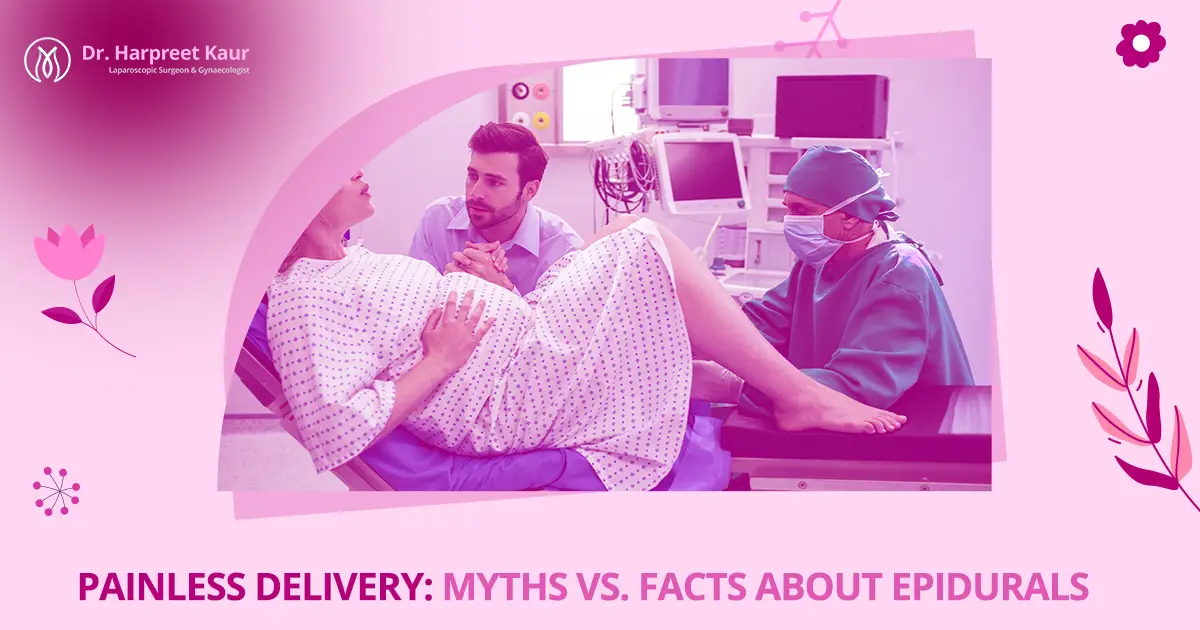Clinic Location
Care n Cure Clinic, Nayapalli, Near Hotel Crown, Bhubaneswar
For Consultation
+91 7008110200
+91 9090910009
Work Hours
Mon - Fri : 05:30 - 07:30
- Home
- About Doctor
- Services
Postnatal care
Gynaecological services
- General Consultatnt
- Adolescent Clinic
- Well Women Clicnic
- Gynaecological Surgeries
- Gallery
- Your Pregnancy
- Training
- Contact
- Feedback
- Blog
- Home
- About Doctor
- Services
Postnatal care
Gynaecological services
- General Consultatnt
- Adolescent Clinic
- Well Women Clicnic
- Gynaecological Surgeries
- Gallery
- Your Pregnancy
- Training
- Contact
- Feedback
- Blog
- Home
- About Doctor
- Services
Postnatal care
Gynaecological services
- General Consultatnt
- Adolescent Clinic
- Well Women Clicnic
- Gynaecological Surgeries
- Gallery
- Your Pregnancy
- Training
- Contact
- Feedback
- Blog
Painless Delivery: Myths vs. Facts About Epidurals

For expecting mothers, the anticipation of childbirth often comes with a mix of joy and anxiety—especially regarding labor pain. Epidural pain relief is one of the most discussed options for a painless delivery, yet it’s also one of the most misunderstood. To help demystify this popular method, Dr Harpreet Kaur sheds light on the truths and misconceptions surrounding epidurals.
What Is an Epidural?
An epidural is a regional anesthesia that blocks pain in a specific part of the body—in this case, the lower half. Administered through a catheter inserted into the epidural space of the spine, it allows laboring women to remain awake and alert while reducing the intensity of contractions.
Dr Harpreet Kaur explains that epidurals are safe, effective, and widely used across the globe. Yet, misinformation often leads to unnecessary fear or rejection of this valuable pain relief option.
Myth #1: Epidurals Guarantee a Completely Painless Delivery
Fact:
While epidural pain relief significantly reduces labor pain, it may not eliminate all sensations. Many women still feel pressure or movement during delivery. The goal is to make labor manageable and less traumatic—not completely numb.
Dr Harpreet Kaur emphasizes that the effectiveness of an epidural can vary depending on timing, dosage, and individual anatomy.
Myth #2: Epidurals Can Harm the Baby
Fact:
Extensive research shows no significant evidence that epidurals negatively impact the baby’s health. The medication used in epidurals does enter the bloodstream but in such small amounts that it’s considered safe for both mother and baby.
According to Dr Harpreet Kaur, epidurals may sometimes slow labor slightly or necessitate the use of assisted delivery methods like forceps or vacuum. However, these situations are typically managed efficiently by skilled healthcare providers.
Myth #3: You Can’t Push With an Epidural
Fact:
Contrary to popular belief, most women are still able to push effectively with an epidural. The technique and dosage can be adjusted to allow enough muscle control for active participation during the final stage of labor.
Dr Harpreet Kaur advises that staying mobile in early labor and working closely with your birthing team can improve outcomes—even with an epidural in place.
Myth #4: Epidurals Always Lead to C-Sections
Fact:
There is no conclusive evidence that epidurals directly cause higher rates of Cesarean sections. Earlier studies suggested a possible link, but more recent research has debunked this theory. Factors like labor progression, fetal distress, or maternal health play a much more significant role.
Epidural pain relief, when administered properly, can help reduce stress and exhaustion, potentially lowering the need for emergency interventions.
Myth #5: Getting an Epidural Is Extremely Painful
Fact:
The idea of a large needle in the spine sounds daunting, but the process is generally not painful. A local anesthetic is applied to numb the area before the epidural catheter is inserted. Most women describe the feeling as pressure rather than pain.
Dr Harpreet Kaur reassures patients that the procedure is handled by trained anesthesiologists who ensure safety and comfort.
Myth #6: Epidurals Cause Long-Term Back Pain
Fact:
Many women attribute post-delivery back pain to epidurals, but this is often a coincidence. Back pain is a common postpartum complaint, regardless of the pain relief method used.
There is no scientific evidence proving a direct link between epidural administration and chronic back pain. Dr Harpreet Kaur notes that proper positioning during the procedure can minimize temporary soreness at the injection site.
Myth #7: You Can Only Get an Epidural Early in Labor
Fact:
Although early administration is common, epidurals can be given at almost any point during active labor—as long as the cervix is not fully dilated. Timing depends on the mother’s condition and the healthcare provider’s assessment.
Personalized Pain Management With Dr Harpreet Kaur
Every birth experience is unique, and so is the choice of pain management. Dr Harpreet Kaur advocates for informed decision-making supported by medical facts rather than myths. She encourages open dialogue between expecting parents and their healthcare team to address individual concerns and preferences.
Epidural pain relief is not the right choice for everyone, but for many, it offers a safe and effective way to reduce labor discomfort and focus on the joy of childbirth.
Conclusion
Navigating the sea of information about painless delivery and epidural myths can be overwhelming. However, understanding the facts behind epidural pain relief empowers expectant mothers to make confident, informed choices. With guidance from experts like Dr Harpreet Kaur, women can embrace childbirth with less fear and more knowledge—leading to a more positive and empowered birth experience.

